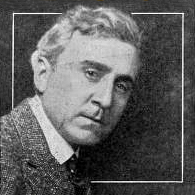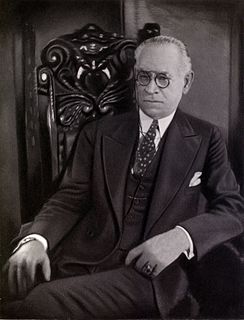

Frances Nelson (November 7, 1892 in St. Paul, Minnesota - January, 1975 in The Bronx, New York) was an American silent film actress.


Frances Nelson (November 7, 1892 in St. Paul, Minnesota - January, 1975 in The Bronx, New York) was an American silent film actress.

Joseph Louis De Grasse was a Canadian film director. Born in Bathurst, New Brunswick, he was the elder brother of actor Sam De Grasse.

Viola Dana was an American film actress who was successful during the era of silent films. She appeared in over 100 films, but was unable to make the transition to sound films.

Lois Wilson was an American actress who worked during the silent film era. She also directed two short films and was a scenario writer.

Robert Zigler Leonard was an American film director, actor, producer, and screenwriter.

Frank Keenan was an American stage and film actor and stage director and manager during the silent-film era. He was among the first stage actors to star in Hollywood, and he pursued work in film features for a number of years.

Marin Sais was an American actress whose career was most prolific during the silent film era of the 1910s and 1920s. Sais' acting career spanned over four decades and she is possibly best recalled for appearing in Western themed films.

Helen Jerome Eddy was a motion picture actress from New York City. She was noted as a character actress who played genteel heroines in films such as Rebecca of Sunnybrook Farm (1917).

Doris Margaret Kenyon was an American actress of motion pictures and television.

Harry Montagu Love was an English screen, stage and vaudeville actor.

Shirley Mason was an American actress of the silent era.

Jackie Saunders was an American silent screen actress who was one of the major players and stars of Balboa Films.

Frieda Ulricke "Henny" Porten was a German actress and film producer of the silent era, and Germany's first major film star. She appeared in more than 170 films between 1906 and 1955.

Lawrence Dallin "Dal" Clawson founded the American Society of Cinematographers.
One of Many is a 1917 American film written and directed by Christy Cabanne, starring Frances Nelson with Niles Welch, Mary Mersch, Caroline Harris and Harold Entwistle.
Love's Crucible is a 1916 American film directed by Emile Chautard based on the play The Point of View by Jules Eckert Goodman. The film stars Frances Nelson.

Selznick Pictures was an American film production company active between 1916 and 1923 during the silent era.
The Beautiful Lie is a 1917 American silent drama film, directed by John W. Noble. It stars Frances Nelson, Harry S. Northrup, and Edward Earle, and was released on May 21, 1917. It tells the tale of a woman whose reputation is sullied, and then recovered. It received mostly positive reviews, and the performances by the three stars were all given high marks for their work, particularly Nelson. As of 2019, it is considered a lost film.

Walter K. Whitman was an American character actor of the stage and screen who was active during Hollywood's silent era. He is not to be confused with the influential poet of the same name.
Bison Film Company is an American film studio established in 1909 and disestablished in 1917.

Frances Raymond (1869–1961) was an American stage and film actress. An established character actress, she played in a number of supporting roles during the silent era. Later, during the sound era, she primarily played much smaller, uncredited parts.